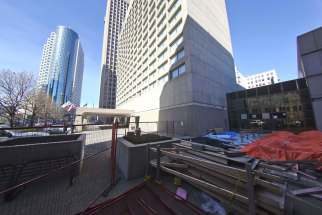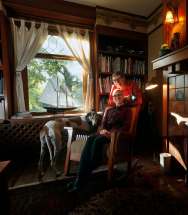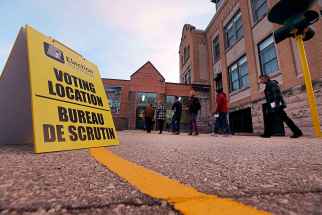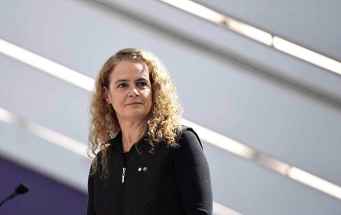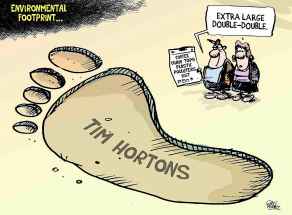Taking aim at apathy Variety of efforts underway to get more Winnipeggers -- especially Indigenous people and newcomers -- to participate in the Oct. 24 civic election
Read this article for free:
or
Already have an account? Log in here »
To continue reading, please subscribe:
Monthly Digital Subscription
$0 for the first 4 weeks*
- Enjoy unlimited reading on winnipegfreepress.com
- Read the E-Edition, our digital replica newspaper
- Access News Break, our award-winning app
- Play interactive puzzles
*No charge for 4 weeks then price increases to the regular rate of $19.00 plus GST every four weeks. Offer available to new and qualified returning subscribers only. Cancel any time.
Monthly Digital Subscription
$4.75/week*
- Enjoy unlimited reading on winnipegfreepress.com
- Read the E-Edition, our digital replica newspaper
- Access News Break, our award-winning app
- Play interactive puzzles
*Billed as $19 plus GST every four weeks. Cancel any time.
To continue reading, please subscribe:
Add Free Press access to your Brandon Sun subscription for only an additional
$1 for the first 4 weeks*
*Your next subscription payment will increase by $1.00 and you will be charged $16.99 plus GST for four weeks. After four weeks, your payment will increase to $23.99 plus GST every four weeks.
Read unlimited articles for free today:
or
Already have an account? Log in here »
Hey there, time traveller!
This article was published 12/10/2018 (2616 days ago), so information in it may no longer be current.
For the Indigenous teen who grew up in a single-parent household in the North End, it was one of the most intimidating things he’d ever done.
Vote.
“I was kind of nervous and scared,” said Kevin Chief, who remembers voting for the first time at the urging of his high school friend and present-day city councillor, Cindy Gilroy.
“I was raised by my father in the North End and he never voted,” said Chief. “Cindy asked me to vote in the 1992 election — her dad Ernie Gilroy was running for mayor.”
Chief remembers telling her his excuse not to vote: “What if I go and they don’t let me vote? She said, ‘They have to. You can do this.’ It took a lot of her encouraging me to do it,” said Chief, who later ran provincially, winning in Point Douglas in 2011 and holding a cabinet post in the previous NDP government before resigning in 2017.
Increasing participation
Giving permanent residents the vote: Winnipeg city councillor Janice Lukes said a lot of new Canadians are politically active, but even though they’re permanent residents and paying taxes, they can’t cast ballots because they’re not Canadian citizens.
Lukes and groups such as Got Citizenship? Go Vote are calling for city council to push the province to allow permanent residents to vote in civic elections.
Giving permanent residents the vote: Winnipeg city councillor Janice Lukes said a lot of new Canadians are politically active, but even though they’re permanent residents and paying taxes, they can’t cast ballots because they’re not Canadian citizens.
Lukes and groups such as Got Citizenship? Go Vote are calling for city council to push the province to allow permanent residents to vote in civic elections.
Currently, there are no municipalities in Canada that allow it, said University of Calgary political science Prof. Jack Lucas. It was once the case that non-citizen residents who were property owners were legally allowed to vote in municipal elections in every major city in Western Canada, he said. In the U.S., San Francisco and several cities in Maryland are allowing non-citizens — permanent residents and undocumented immigrants — to vote for school board trustees.
Voting online: Internet voting can increase turnout by 3.5 percentage points, according to researchers who looked at Ontario elections, where 98 municipalities have adopted Internet voting since 2003
Drive-thru voting: In its 2017 civic election, Elections Calgary offered a drive-up polling station at McMahon Stadium. It was originally set up to serve 10 vehicles at a time, but after seeing the high volume of traffic, it doubled the number of election officers on site. The first day of advance voting saw more than twice the turnout compared with Calgary’s 2013 election.
— Sources: Internet Voting and Municipal Turnout in Ontario; Edmonton Journal
Getting people to vote is a major challenge, especially those who’ve never voted before. With Indigenous people and new Canadians making up Manitoba’s fastest-growing populations, the need to engage them in the political process has never been more urgent, said Chief, who is now the vice-president of the Business Council of Manitoba.
Winnipeg’s Indigenous population, currently about 92,000, is expected to grow by four per cent per year — to 114,000 by 2021.
Immigrants and first-generation Canadians make up 40 per cent of Winnipeg’s population but fewer than a quarter of eligible voters are believed to have cast ballots in the last municipal election, according to the non-partisan Got citizenship? Go vote! campaign.
“We have to remove the barriers to take full advantage of the opportunities,” said Chief. “If people aren’t engaging in democracy and taking part in elections, we’re missing a huge opportunity to get resources to the people who need them.”
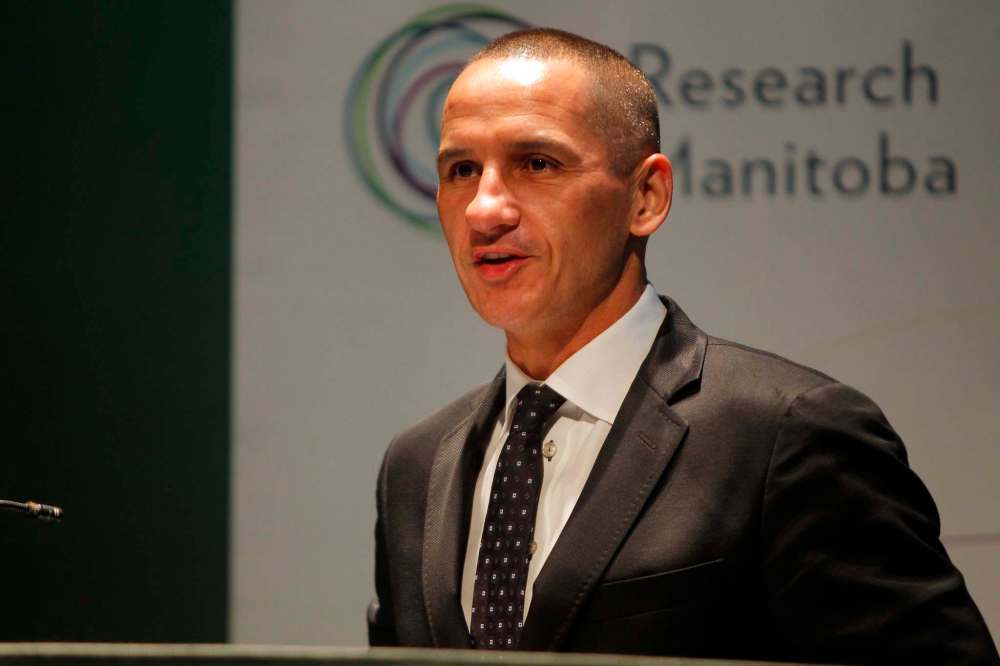
At the municipal level, it’s even more of a challenge to get people to vote than in provincial or federal elections.
“It absolutely drives me crazy that people don’t realize that at the civic level we impact their lives the most,” said Winnipeg city councillor Janice Lukes (South Winnipeg-St. Norbert), who was acclaimed in the newly created Waverley West ward last month. “We’re the level of government closest to the people; it’s cliche but its true. The decisions we make impact people’s lives dramatically.”
Turnout in the 2015 federal election was 68 per cent. The 2016 provincial election saw 57 per cent of eligible voters cast ballots. In the last municipal election in 2014, just 50.2 per cent of Winnipeggers voted. That was higher than in the previous two civic elections, 38 per cent in 2006 and 47.1 per cent in 2010.
“It’s a real puzzle,” said University of Manitoba political studies Prof. Royce Koop. Civic government is responsible for things like policing, potholes and garbage collection but federal elections get a higher voter turnout.
“People don’t perceive the results as important.”
Provincial and federal elections get more participation because the party system makes them more exciting and easier to follow than municipal races, he said.
“(The parties) organize conflict, take positions, have platforms and provide voters with choice,” he said. “When there are no parties, we get a mish-mash of candidates, and who knows what their policies are?”
A major grievance or “something really exciting” can get more people to vote in a municipal election, but Koop doubts the contentious plebiscite question on whether to reopen Portage and Main to pedestrians will drive more Winnipeggers to the polls.
“Some people really want it to open but they fall into the groups that are more likely to vote anyway,” he said.
“People pay attention to a race that’s competitive and you’ll get a higher turnout than a non-competitive race. If, in the polls, I see (incumbent mayor Brian) Bowman is way out front, I think my vote isn’t going to make a difference — Bowman is just going to walk back into power.”
To increase voter turnout, Calgary has tried drive-up polling stations, and Ontario municipalities have had some success with online voting.
Advance voting
Advance voting is available at city hall Monday through Friday from 9 a.m. to 4 p.m., except for Thursday when you can vote in advance from 8 a.m. to 8 p.m.
This weekend, you can vote at both St. Vital Centre and Garden City Shopping Centre. Available voting hours there are as follows:
Saturday and Sunday, Oct. 13-14 from 11 a.m. to 6 p.m.
Voters can visit wfp.to/wheretovote to enter their home address for a listing of all advance and election day opportunities, as well to view all eligible candidates.
For other advance poll locations and times, see: wfp.to/advancevote
While good ideas, they’re not going to create any new voters or a real sense of civic engagement, Chief said.
In 1992 when he voted for the first time, 58 per cent of voters cast a ballot, the highest turnout for a Winnipeg municipal election in 25 years. He vividly remembers his polling station was in Strathcona School, which he attended as a child.
“I remember that it made me feel kind of important and proud,” he said. “I was 18 and I could vote. It was that personal connection (with Gilroy) that gave me the confidence to do it. It came down to having a friend who said, ‘It’s important you do this.’”
That’s the message Chief is spreading now. He’s talking to high school and university students, organizations and business groups about the importance of voter engagement.
“We’re in a kind of dangerous time,” he said. Voter turnout is low and social media is being relied upon more and more to connect with voters — a strategy Chief has little faith in getting out the vote.
“A Facebook friend is very different than a friend who does something with you,” he said. “Facebook ‘Likes’ don’t turn into votes.”
When he decided to run in Point Douglas — one of Canada’s lowest-income postal codes — the challenge wasn’t to get people to vote for him, it was to get people to vote, period. He asked veteran politician Lloyd Axworthy how candidates got out the vote before the Internet and social media.
His answer was simple: volunteers. Axworthy told him developing relationships with people was vital and that “every person you engage with has a network of people.” That’s how Chief’s campaign attracted 350 volunteers and resulted in 1,177 new voters casting ballots in Point Douglas in 2011 — a 25 per cent increase for the riding.
“The critical ingredient is you have to make sure people know they belong,” he said.
A greeter at the campaign office on Burrows Avenue welcomed everyone when they walked in the door and asked if she could snap a photo and post it on the wall; volunteers weren’t just strangers — they were friends and family and could point to a picture of someone they knew on the wall. They weren’t just given a job to do, they were asked what they’d like to do, Chief said.
“The people were getting involved in a relationship,” he said, adding they helped increase turnout by getting the word out about what ID is required to vote. They helped Elections Manitoba identify where and when to set up advance, mobile polling stations at seniors centres, adult education centres and the Indian and Metis Friendship Centre on bingo game days.
“Advance polls really do make a difference. Have polls in places where people go,” he said.
Wherefore art thou, municipal voters?
More than half of millennials (those born between 1980 and 1995) who are eligible voters often cite lack of motivation as a reason they don’t participate.
More than half of millennials (those born between 1980 and 1995) who are eligible voters often cite lack of motivation as a reason they don’t participate.
Representing 25 per cent of Canada’s population, millennials are one of the largest cohorts and the most diverse in Canadian history.
One of the top reasons cited for their low turnout is a lack of trust in the candidates.
Two-thirds say the support provided for the needs and aspirations of their generation from the country’s major institutions has been either fair or poor.
Source: Apathy is Boring — June 2017 Municipal Engagement Best Practices Report
By days end Wednesday — Day 10 of advance polls in this year’s election — 12,047 voters had cast ballot. At the end of Day 10 in 2014, 9,146 voters had participated in advance polls. In total, 30,619 advance votes were cast.
“Putting more of an emphasis on the people where there is low voter turnout and telling them what they need to vote, that’s the personal touch that’s needed,” Chief said.
“Now it’s something I do with pride. When I vote, I bring my kids. This is something people have literally died for us to have.”
That’s not lost on Surafel Kuchem, an immigrant from Ethiopia, who is voting in his first municipal election on Oct. 24.
“The chance to vote in political system is a wonderful experience,” said Kuchem, who came to Canada as a teen from Ethiopia in 2005. It took him more than a decade to become a citizen and become eligible to vote. He was busy working as a cleaner to survive and put himself through university while coaching and volunteering at an after-school program.
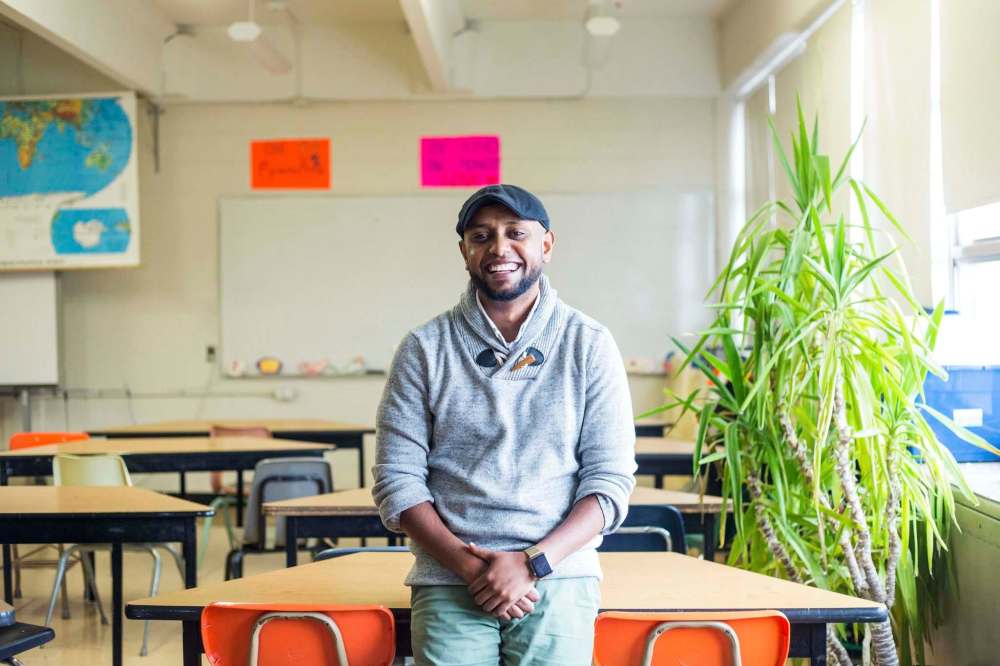
Now a middle-school math and science teacher, he’s still busy, running an after-school homework program called Peaceful Village and helping to get out the vote with the Got citizenship? Go vote! campaign.
“Civic engagement is a huge issue that needs to be addressed,” he said.
Abdikheir Ahmed, one of the founders of the campaign, said he’s bothered by voter apathy.
“It makes me feel very bad,” said Ahmed, a refugee from Somalia who voted for the first time in Canada in 2010.
“A lot of people I talk to say, ‘What’s the use? I don’t want to vote, what is it going to change for me?’”
For people from countries that experience ballot-box stuffing, voter intimidation or violence, or who’ve never had the right to cast a vote, that blasé attitude toward democracy is puzzling.
“Here, their families live in peace but they don’t actually link leadership and voting with daily life,” said Ahmed, director of Immigration Partnership Winnipeg.
Got citizenship? Go vote! is using social media and training sessions and held a mayoral forum last Saturday in the inner city. It produced YouTube videos in a number of languages explaining why municipal elections matter, who is eligible to vote and how to cast a ballot. Various ethnic community leaders are handing out pledge cards for voters to fill out that say where and when they plan to vote, and how they will get to the polls.
The goal is to get 5,000 newcomers to the polls.
He is on the campaign all the time. As he was the other other day, when he was in a halal grocery store and a young mom from Morocco who is now a Canadian citizen asked him about the ‘Go vote!’ button on his jacket. Ahmed explained and asked her if she’s planning to vote. When she said no, he told her that her vote can influence who’s on the board making decisions about her child’s school and what kind of recreational facilities city council will fund in their neighbourhood.
She changed her mind, he said.
Koop said there are many things governments could take to increase voter turnout, including making voting mandatory, conducting more ad campaigns, making it easier for people by adjusting ID requirements, increasing the number of advance voting places and times and allowing people to vote online.
“In the past, it was thought to be your civic duty,” said Koop, who has pushed for more civics education in Manitoba’s social studies curriculum. “Convincing people they have a duty to vote requires a generational shift.”
Ultimately, the hand that rocks the cradle exerts the biggest influence over whether or not people will participate. Koop said there’s ample evidence that a sense of civic duty gets passed down from one generation to the next.
“If your parents vote, you’re more likely to vote,” he said.
carol.sanders@freepress.mb.ca

Our newsroom depends on a growing audience of readers to power our journalism. If you are not a paid reader, please consider becoming a subscriber.
Our newsroom depends on its audience of readers to power our journalism. Thank you for your support.

